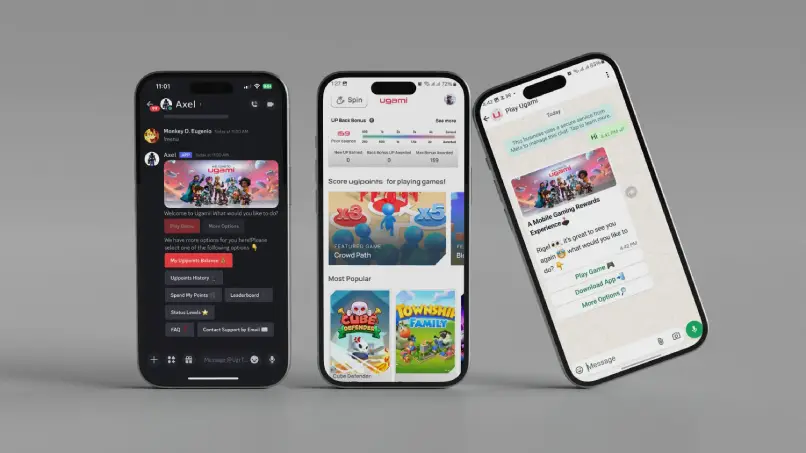Play to earn rewards: the innovative frontier of online gaming and earning
Play to earn rewards: the innovative frontier of online gaming and earning
Blog Article
Why Play-to-Earn Incentives Are Transforming the Method You Play and Earn
The introduction of play-to-earn versions symbolizes a remarkable shift in the pc gaming landscape, inviting players to discover not just the enjoyment value of games but also their possible as income-generating systems. Recognizing these dynamics raises significant questions about the future of video gaming and the ramifications for both gamers and developers alike.
Emergence of Play-to-Earn Models
Recently, the gaming sector has actually witnessed a significant improvement with the appearance of play-to-earn models, essentially changing just how players engage with electronic settings. This cutting-edge approach permits players to gain tangible benefits with their in-game tasks, producing a shift from standard pc gaming paradigms where enjoyment and competitors were the main inspirations.
Play-to-earn versions take advantage of blockchain innovation and non-fungible tokens (NFTs) to supply players with possession of in-game possessions, which can be traded or cost real-world money. Therefore, players are incentivized to spend time and initiative right into games, promoting a feeling of agency and monetary opportunity. play to earn rewards. This change has drawn in a varied gamer base, consisting of those who might have previously checked out video gaming as a simply recreational task
Numerous platforms have actually arised, showcasing successful implementations of this design, such as Axie Infinity and Decentraland. These platforms have not just generated significant revenue however also stimulated discussions around the sustainability and principles of such economic systems. As play-to-earn versions remain to advance, they assure to redefine the partnership in between gamers, programmers, and the more comprehensive electronic economy, leading the way for a new era in video gaming.
Advantages for Gamers
As players engage with play-to-earn models, they open a range of advantages that extend beyond simple amusement. One of the most substantial benefits is the potential for economic benefits. Unlike conventional video gaming, where players invest time and money without concrete returns, play-to-earn systems allow gamers to earn copyright or in-game properties that can be transformed to real-world value. This financial reward not only enhances engagement but additionally fosters a feeling of ownership over the gaming experience.
In addition, play-to-earn designs advertise community structure amongst gamers. Players typically team up to achieve shared goals, consequently growing social links that improve the total experience. This sense of neighborhood can cause cooperative gameplay, where gamers share techniques and resources, boosting both personal and team accomplishments.
Furthermore, these models can democratize access to gaming by enabling gamers from diverse financial backgrounds to benefit economically. By taking part in play-to-earn communities, people can acquire skills and expertise concerning blockchain modern technology, more expanding their career possibilities in the expanding electronic economic situation. Eventually, the advantages for gamers extend well past gameplay, influencing their social, financial, and instructional landscapes positively.
Obstacles in the Ecosystem
While the play-to-earn ecological community offers significant possibilities, it is not without its difficulties. One significant concern is the see this here volatility of in-game currencies and possessions, which can lead to unpredictable profits for gamers. Variations in worth can hinder potential gamers who seek steady income streams - play to earn rewards. Additionally, the complexities of blockchain modern technology might confuse individuals unfamiliar with digital money, developing barriers to access.
One more difficulty is the threat of scams and deceitful systems that can pester the community. Players may encounter deceitful systems guaranteeing high benefits however ultimately causing monetary loss. Making certain count on and security is crucial for the long-lasting stability of play-to-earn designs.
Moreover, the environmental impact of blockchain gaming can not be forgotten. The power intake connected with mining and deal handling increases ethical inquiries concerning sustainability. Video game developers have to discover a balance between satisfying players and reducing eco-friendly footprints.
Finally, the regulative landscape is still advancing, positioning prospective dangers for developers and gamers alike. Uncertain legal frameworks can impede advancement and limit the development of play-to-earn environments. Resolving these obstacles is essential for recognizing the complete potential of this transformative gaming paradigm.
The Duty of Blockchain Technology
Blockchain innovation works as the foundation of the play-to-earn community, dealing with most of the obstacles previously described. By utilizing decentralized ledgers, blockchain guarantees transparency and safety in deals. Gamers can with confidence make and trade in-game possessions, recognizing that possession is proven and not subject to manipulation.

Tokenization of possessions plays an essential role, approving players real ownership of their in-game things, which can be acquired, sold, or traded on various industries. This urges a vibrant second market, where players can monetize their skills and time purchased the video game.
In addition, blockchain technology allows interoperability in between different games and systems, allowing gamers to lug their assets throughout various environments. This versatility not only improves customer experience however additionally advertises an extra comprehensive pc gaming setting, eventually reshaping the landscape of video gaming and earning.
Future Fads in Gaming
The gaming industry is on the brink of a transformative advancement, driven by arising technologies and shifting player assumptions. As play-to-earn models gain grip, players are significantly try this web-site looking for immersive experiences that blend amusement with substantial rewards. This shift is triggering designers to innovate, concentrating on producing appealing gameplay that cultivates community and communication.
One noteworthy pattern is the integration of virtual fact (VIRTUAL REALITY) and boosted truth (AR), boosting the gaming experience by giving much deeper immersion and interactive settings. Additionally, innovations in artificial knowledge are making it her comment is here possible for more advanced non-player personalities (NPCs) and adaptive gameplay, customizing experiences to private player preferences.

Final Thought
Finally, the play-to-earn design is substantially transforming the gaming landscape by enabling gamers to derive real-world worth from their in-game activities. This paradigm change not only enhances gamer involvement and financial investment however likewise raises obstacles that must be resolved to guarantee sustainability within the environment. As blockchain technology remains to help with possession of digital properties, the future of gaming promises additional development and opportunities for players throughout diverse histories.
Report this page